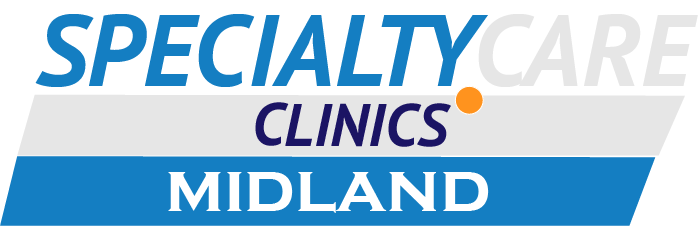Sprains can happen in an instant – a misstep on uneven ground, an awkward landing during sports, or a simple twist while carrying groceries. When ligament injuries occur, immediate and proper medical attention is crucial for optimal healing and preventing long-term complications. Our urgent care clinic specializes in providing comprehensive sprain treatment with the expertise and advanced diagnostic capabilities you need, without the wait times and costs associated with emergency room visits.
Understanding Sprains: More Than Just a “Twisted” Joint
A sprain occurs when ligaments – the tough, fibrous tissues connecting bones at joints – are stretched or torn beyond their normal range of motion. Unlike strains that affect muscles and tendons, sprains specifically involve joint stability structures and can range from mild stretching to complete ligament rupture.
Sprains are classified into three grades based on severity. Grade I sprains involve mild stretching with microscopic tears, causing minimal pain and swelling while maintaining joint stability. Grade II sprains feature partial ligament tears with moderate pain, swelling, and some joint instability. Grade III sprains represent complete ligament ruptures, resulting in severe pain, significant swelling, and marked joint instability that may require surgical intervention.
The most commonly affected areas include ankles, wrists, knees, and thumbs, though any joint can experience sprain injuries. Ankle sprains alone account for approximately 25,000 injuries daily in the United States, making them one of the most frequent musculoskeletal injuries requiring medical attention.
Why Choose Urgent Care for Sprain Treatment
Our urgent care clinic offers the perfect middle ground between primary care appointments that may be days away and expensive emergency room visits for non-life-threatening injuries. We provide immediate access to experienced medical professionals who specialize in musculoskeletal injuries, equipped with on-site diagnostic imaging and comprehensive treatment capabilities.
Unlike emergency departments that prioritize life-threatening conditions, our urgent care team can dedicate focused attention to properly evaluating and treating your sprain injury. We understand that while sprains aren’t life-threatening, they can significantly impact your daily activities, work performance, and quality of life when left untreated or improperly managed.
Our clinic maintains extended hours and weekend availability, recognizing that injuries don’t follow convenient schedules. Whether your sprain occurs during a weekend soccer game or late-night household activity, our medical team is ready to provide prompt, professional care when you need it most.
Comprehensive Diagnostic Approach
Proper sprain treatment begins with accurate diagnosis. Our medical professionals conduct thorough physical examinations, assessing pain levels, swelling patterns, joint stability, and range of motion limitations. We utilize specific stress tests designed to evaluate ligament integrity and determine injury severity.
Advanced on-site diagnostic imaging capabilities set our urgent care clinic apart from basic walk-in clinics. Digital X-rays help rule out fractures that may accompany sprain injuries, while our ultrasound technology can visualize soft tissue damage and assess ligament tears in real-time. When necessary, we can quickly arrange MRI studies for complex cases requiring detailed soft tissue evaluation.
Our experienced medical team understands the subtle differences between various ankle positions that indicate different types of sprains. Whether dealing with lateral ankle sprains affecting the anterior talofibular ligament or more complex syndesmotic injuries involving the high ankle region, accurate diagnosis guides appropriate treatment strategies.
Immediate Treatment and Pain Management
Effective sprain treatment begins immediately with our modified R.I.C.E. protocol – Rest, Ice, Compression, and Elevation – enhanced with professional medical interventions. Our clinic provides immediate pain relief through appropriate medications, including anti-inflammatory drugs that address both pain and swelling simultaneously.
Professional-grade immobilization devices available at our clinic include specialized braces, walking boots, and supportive wrapping techniques that provide optimal joint protection while allowing appropriate healing. Unlike over-the-counter options, our medical-grade supports are properly fitted and selected based on your specific injury pattern and lifestyle needs.
We provide prescription pain medications when necessary, along with detailed instructions for safe and effective use. Our medical team carefully evaluates each patient’s pain levels, medical history, and potential drug interactions to ensure appropriate pain management throughout the healing process.
Advanced Treatment Modalities
Our urgent care clinic employs evidence-based treatment approaches that go beyond basic first aid. Depending on injury severity and patient needs, we may recommend corticosteroid injections to reduce inflammation and accelerate healing in specific cases. These targeted injections can provide significant pain relief while promoting faster recovery times.
For patients with recurrent sprain injuries or those involved in competitive athletics, we offer specialized treatment protocols designed to address underlying biomechanical factors that contribute to injury susceptibility. Our medical team evaluates gait patterns, joint mechanics, and muscle imbalances that may predispose individuals to repeated sprain injuries.
We maintain strong relationships with orthopedic specialists and physical therapy providers for cases requiring specialized intervention. Severe Grade III sprains or injuries involving multiple ligament tears may benefit from surgical consultation, which we can arrange promptly when indicated.
Rehabilitation and Recovery Guidance
Recovery from sprain injuries involves more than simply waiting for pain to subside. Our urgent care team provides comprehensive rehabilitation guidance designed to restore full joint function while preventing reinjury. We understand that premature return to activities often leads to recurrent injuries and long-term joint instability.
Structured rehabilitation protocols begin with protecting the injured ligaments while maintaining appropriate joint mobility. As healing progresses, we guide patients through progressive strengthening exercises that restore muscle function around the affected joint. Balance and proprioceptive training help retrain the nervous system’s ability to sense joint position and respond to unstable surfaces.
Our medical professionals provide detailed written instructions for home care, including exercise progressions, activity modifications, and warning signs that require immediate medical attention. We schedule appropriate follow-up appointments to monitor healing progress and adjust treatment plans based on individual recovery rates.
Prevention and Long-term Joint Health
Beyond treating current injuries, our urgent care clinic emphasizes injury prevention strategies that reduce future sprain risk. We provide education about proper warm-up techniques, appropriate footwear selection, and environmental awareness that can prevent many common sprain mechanisms.
For athletes and active individuals, we discuss sport-specific injury prevention strategies, including protective equipment, conditioning programs, and technique modifications that reduce injury susceptibility. Our team understands that returning to activities too quickly or without proper preparation often leads to more severe reinjuries.
We also address underlying factors that may increase sprain risk, including previous injury history, joint hypermobility, muscle weakness patterns, and balance deficits. Addressing these predisposing factors through targeted interventions can significantly reduce long-term injury risk.
When to Seek Immediate Care
While many minor sprains can be managed with home care initially, certain warning signs require immediate medical evaluation. Severe pain that prevents weight-bearing, significant swelling that develops rapidly, numbness or tingling sensations, or visible joint deformity all warrant urgent medical attention.
Our urgent care clinic provides the expertise needed to differentiate between simple sprains and more complex injuries that may require specialized treatment. Early intervention often prevents complications and promotes faster, more complete recovery outcomes.
Don’t let a sprain injury compromise your mobility and quality of life. Our urgent care clinic combines immediate availability with specialized expertise to provide comprehensive sprain treatment when you need it most. Contact us today or visit our clinic for prompt evaluation and professional treatment of your sprain injury.
Frequently Asked Questions
Q: Should I go to urgent care or the emergency room for a sprain?
A: Choose urgent care for most sprain injuries unless you suspect a fracture, experience severe deformity, complete inability to bear weight, or signs of circulation problems like numbness or color changes. Urgent care provides specialized musculoskeletal expertise with shorter wait times and lower costs than emergency rooms for non-life-threatening injuries.
Q: How long does it take for a sprain to heal?
A: Healing time varies by severity and location. Grade I sprains typically heal in 1-3 weeks, Grade II sprains take 3-6 weeks, and Grade III sprains may require 6-12 weeks or longer. Factors like age, previous injuries, compliance with treatment, and overall health significantly impact recovery time.
Q: Can I walk on a sprained ankle immediately after injury?
A: This depends on sprain severity. Grade I sprains may allow limited weight-bearing with discomfort, while Grade II and III sprains often require protected weight-bearing or complete non-weight-bearing initially. Our medical team will assess your specific injury and provide appropriate weight-bearing instructions with necessary supportive devices.
Q: Will my sprain heal properly without medical treatment?
A: While minor sprains may heal without professional care, improper treatment often leads to chronic instability, recurrent injuries, and long-term joint problems. Professional evaluation ensures accurate diagnosis, appropriate treatment, and proper rehabilitation to restore full function and prevent complications.
Q: When can I return to sports or normal activities after a sprain?
A: Return to activities should be gradual and based on functional recovery rather than pain absence alone. Generally, you should have full range of motion, normal strength, good balance, and be able to perform sport-specific movements without pain before returning to full activities. Our medical team provides specific guidelines based on your injury and activity level.


